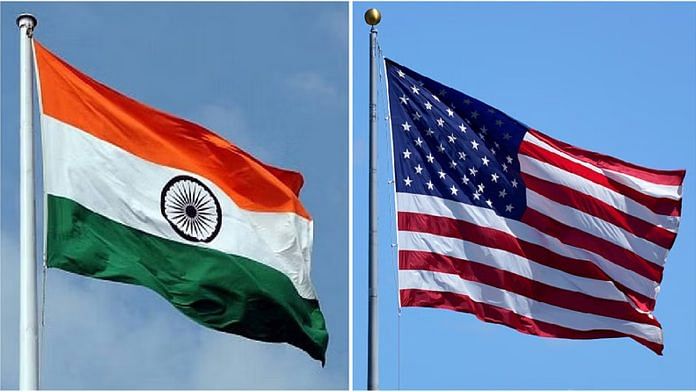New Delhi: Ahead of the launch of the India-US Cancer Dialogue in November this year, both countries have reiterated their commitment to growing cooperation in the areas of cancer research, prevention, control, and management.
A joint statement, issued Friday after a bilateral meet between US president Joe Biden and Prime Minister Narendra Modi on the sidelines of the ongoing G20 summit, also highlighted the US-India Health Dialogue to be held in October in Washington, D.C. to strengthen and facilitate scientific, regulatory, and health cooperation between the two countries.
According to the joint statement, the Cancer Dialogue aims to focus on “advancing knowledge in cancer genomics, developing new diagnostics and therapeutics to enhance and strengthen cancer care including for underserved urban and rural communities”.
During Modi’s official state visit to the US in June this year, the Biden administration had — as part of its Cancer Moonshot initiative — committed to accelerating the fight against cancer by developing an artificial intelligence (AI)-enabled digital pathology platform to be utilised for cancer diagnosis, prognosis, and prediction of therapeutic benefit.
Launched in 2016 with a $1.8 billion investment, the Cancer Moonshot initiative aims to expedite the fight against cancer through improved data sharing, accessibility, and advancements in precision medicine in the country and other parts of the world.
Despite concrete progress on improving well-being, noncommunicable diseases, including cancer, account for about 63 percent of all deaths in India. Cancer cases are estimated to increase by nearly 13 percent in 2025, compared to 2020, the White House had said in a statement issued in June this year.
The private sector too has been roped in as part of the initiative. For instance, the Dana-Farber Cancer Institute in Boston is collaborating with Narotam Sekhsaria Foundation, a Mumbai-based nonprofit, to test the impact of adapted tobacco cessation interventions.
With 275 million users of smoked and smokeless tobacco, cessation efforts are critical for addressing tobacco-related cancers and diseases in India. This partnership is advancing interventions that can be used in low-resource settings in Mumbai, said the statement.
In addition, German drugmaker Bayer and the National Cancer Institute (NCI) at the All India Institute of Medical Sciences, Jhajjar, are partnering to improve access to early cancer screening.
This collaboration aims to bring cancer screening to people with a high risk of cancer in underserved rural and urban communities in India, said the statement, adding that the goal is to detect cancer in its early stages and ensure that patients receive timely treatment and care, with a focus on prostate, head, neck, and oral cancers.
Another joint project involves a partnership between Jhpiego — a not for profit affiliated with the Johns Hopkins University — and Swiss drugmaker Roche for a project in Uttar Pradesh focused on integrated screening for breast and cervical cancers.
Also on the cards is a public-private collaboration between the National Brain Tumor Society, Duke University, Open Health Systems Laboratory, Bayer, and others, focused on paediatric cancer. This collaboration aims to partner selected medical centres in urban and rural communities in India with centres in the US through a digital platform using technology licensed from the National Institutes of Health. The digital platform is intended to enable exchange of information between centres in India and American institutions on multidisciplinary care of patients, shared decision-making on individual treatment plans, as well as best practices in patient care in both countries.
Another joint venture in the works involves The Children’s Oncology Group (COG) setting up its first paediatric clinical trial in collaboration with Tata Memorial Hospital in Mumbai, which deals with approximately 2,500 new paediatric cancer cases every year.
(Edited by Amrtansh Arora)
Also Read: WHO warns of ‘cancer risk’ from aspartame, but ‘38% urban Indians’ use artificial sweeteners monthly



